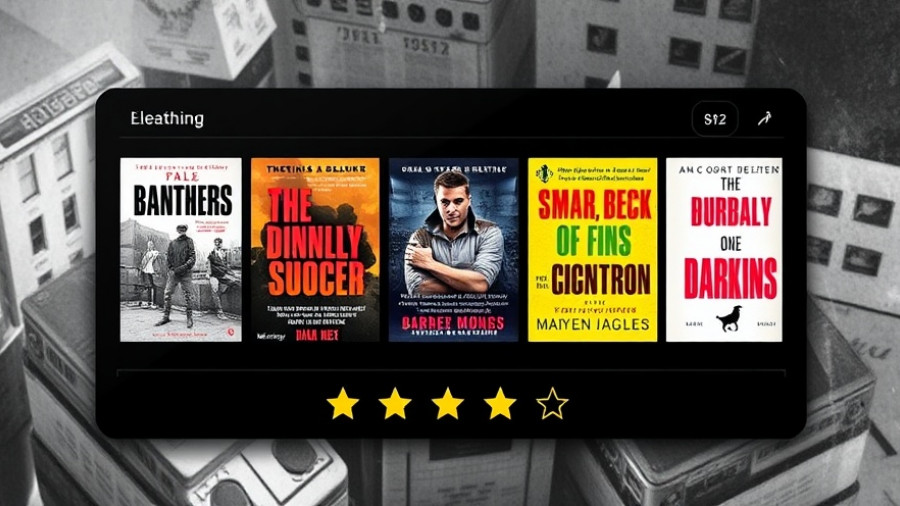
A Rogue Librarian's Message: Censorship at Goodreads
In a bold act that has sent shockwaves through the literary community, a rogue librarian on Goodreads recently altered book listings to expose what they deemed censorship favoring conservative narratives. On Friday, users attempting to delve into the werewolf romance Mate by Ali Hazelwood were confronted with a strange sight—a cover image of Eric Trump’s book Under Siege, alongside a provocative subtitle: 'Goodreads Censorship in Favor of Trump.'
The Unfolding Drama
The librarian claimed that Goodreads had been silencing criticism of Under Siege, stating, 'When we let powerful people’s books be protected from criticism, we give up the right to hold power accountable.' This message resonated with many users who have witnessed an alarming trend of censorship on major platforms. Others echoed concerns that removing negative reviews from conservative authors could normalize authoritarian movements.
As reports unfolded, numerous other popular titles faced similar unauthorized edits, with descriptions altered to reflect this librarian's protest against perceived bias within the platform. A Goodreads spokesperson later confirmed that these changes had been made by a volunteer librarian and that measures were taken to revert to original listings.
A Glimpse into the Current Cultural Landscape
This episode raises broader questions about freedom of expression in the publishing industry, especially as it intertwines with political narratives. The very fabric of literary criticism rests upon the ability to engage with divergent perspectives openly. Yet, as seen in recent publishing trends, many authors delay or revise works over fears of social media backlash—creating what some describe as a culture of self-censorship.
Authors like Sophie Lark and Elizabeth Gilbert have faced harsh critiques, leading to the cancelation or indefinite postponement of their works. The very notion that readers can dictate the fates of books before their release signifies an unsettling shift towards censorship rooted not in governmental power but in grassroots pressures.
The Complex Nature of Censorship
Delving deeper into this issue, it's essential to understand the duality of censorship in today's literary environment. While historically associated with right-wing pressures, movements arising from the left are also surfacing, often in response to societal calls for increased representation and accountability. Kevin Dickinson refers to this phenomenon as the 'Sensitivity Era,' where self-censorship looms large over creative expression, limiting the very diversity its proponents seek to amplify.
This tension illustrates how well-intentioned efforts to foster inclusivity can backfire, resulting in the alienation of authors who might otherwise contribute valuable perspectives. It illustrates a critical conundrum: can a healthy discourse exist if substantial voices are silenced under the weight of political correctness?
Future Implications: Where Does This Leave Us?
The implications of this controversy extend beyond just Goodreads. As platforms wield increasing power over the narratives presented to the public, a growing need for transparency in how these platforms handle critiques emerges. The actions of one rogue librarian have ignited conversations that may well shape the future of book publishing, leading to calls for more robust protections for free speech within literary discourse.
In an age where a book's success may hinge upon the prevailing political climate, one must consider the lasting impact of censorship—including self-censorship—on creativity and authenticity in storytelling. If readers, authors, and publishers allow themselves to become too intimidated by backlash, the result could be a literary landscape devoid of the very complexities and multifaceted dialogues that make literature remarkable.
Your Voice Matters: Engaging with Essential Narratives
As readers and writers navigate this challenging terrain, it's imperative to advocate for a space where all voices can be heard, including those that provoke discomfort. Engage with literature that challenges your views, as literature at its core thrives on diversity and robust discussion.
If you like the Nightingale and the Rose Code, you'll love The Call of the Blackbird by Nancy Polk Hall. This gripping World War II historical fiction mystery, inspired by true events, explores love and secrets amidst Nazi-occupied France. Make sure to check it out if you're a fan of authors like Kristin Hannah and Kate Quinn!
 Add Row
Add Row  Add
Add 




Write A Comment